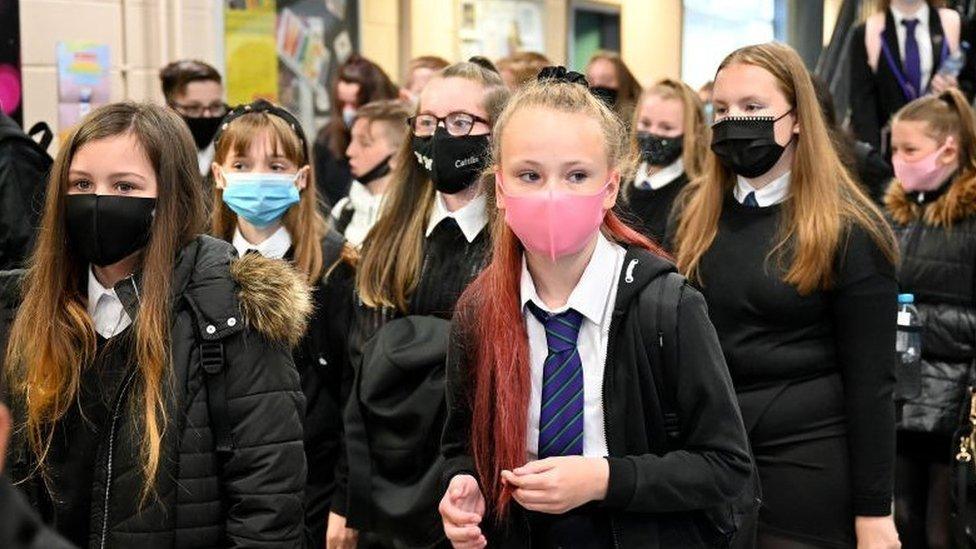Mental Health: 'No face-to-face appointment for 18 months'
- Published
Aimee says she has not had a face-to-face appointment in 18 months, despite being sectioned in 2019
"I couldn't even take my children to school without a voice in my head."
Aimee, 29, from Bridgend, tried to take her own life after her mother's suicide in 2019, feeling it was a "trigger" for her mental health issues.
She said because of the pandemic she has not had a face-to-face appointment in 18 months, despite being sectioned in 2019.
The Welsh government said improving mental health is a priority, with an extra £42m spent this year.
The mother-of-two was diagnosed with complex post-traumatic stress disorder, external and emotionally unstable personality disorder, external and said she been unable to access specialised help during the pandemic.
She said: "My mother, Louise, had suffered all of her life with mental health problems.
"I was experiencing the normal stages of grief, and we as a family were all in a great deal of shock - we were not expecting it.
"I had spoken to mum the night before and I thought she seemed OK and quite feisty which is what she was like.
"After the funeral I just couldn't eat, or sleep and it all took its toll on my body."
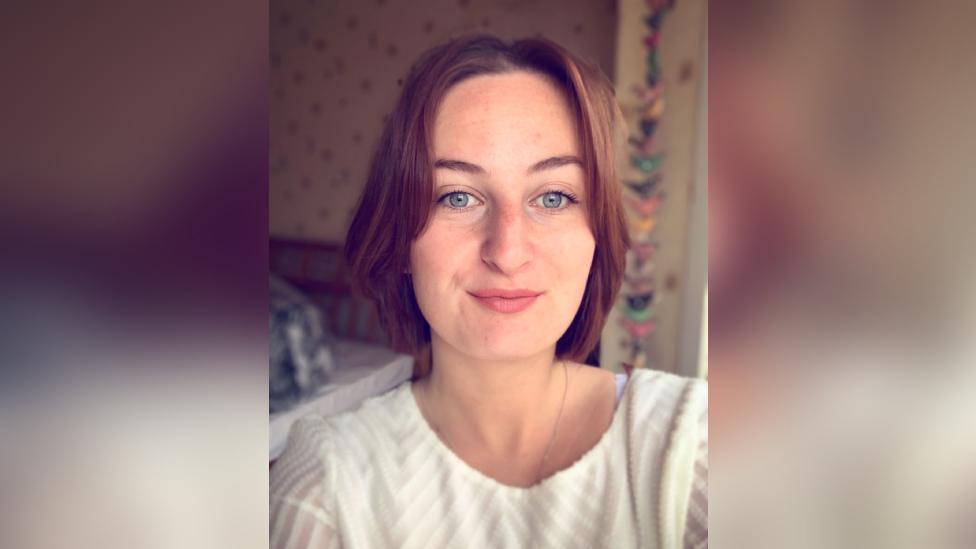
The treatment Aimee wants has a long waiting list and she said it could cost her thousands privately
Aimee said even walking her children to school or making a cup of tea became difficult.
"I'd already previously suffered with my mental health. I started getting intrusive thoughts so I would have random things pop into my head.
"It was a constant battle against myself and it was exhausting. I had to try and act normal for my children, who had no idea what was going on but also fight against something which is still ongoing and how am I meant to fix it, without help?"
She said she felt services had been lacking during the pandemic and "mental health has become a new virus in itself".
"I have not had a single face-to-face appointment since moving back to Wales, so I haven't had any mental healthcare for 18 months.
"I've had no psychologist or psychiatrist appointments, all my treatment has been solely over the phone with a GP and the advice is just to double my medication."
Aimee wants to undergo eye movement desensitisation and reprocessing therapy (EMDR), for which she said the waiting list was "years long".
She said privately the sessions she looked at cost £500 each, with patients usually needing at least five, according to Aimee.
"I haven't got that kind of money and I can't access it," she said.
"I'm dosed up to the eyeballs on medication. And if I don't take it I get extremely poorly. I'm looking for different ways of managing my mental health but how can I get better if I can't get help?"
The Cwm Taf Morgannwg health board said it could not comment on individual cases.
A spokesman said: "We encourage anyone who wishes to discuss a concern or complaint with us directly, and we will do our best to put it right.
"We continue to provide a comprehensive range of services for people with mental health issues, and we encourage anyone who may be needing support to get in touch with our teams."
'Mental health in an unequal world'
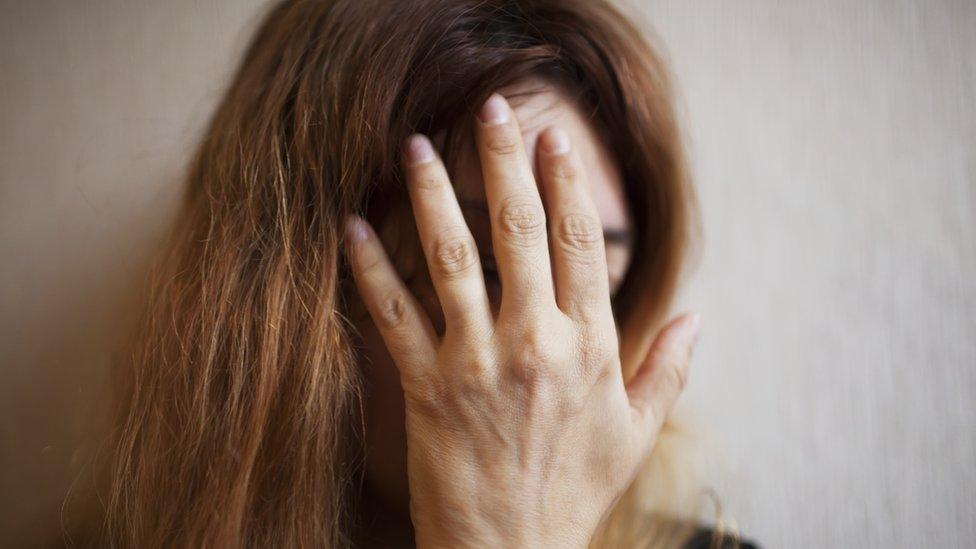
Lockdown has increased mental health referrals, Mind Cymru says
A recent report from the Samaritans found people who needed support during the pandemic had experienced reduced access to already-strained mental health services.
Executive director in Wales Sarah Stone said: "What we need is for people to have the services that suit them. So face to face is really important to people and tailored services.
"The pandemic has highlighted and increased inequalities in a range of ways so the work we have done has showed issues about mental health and well-being, fear of unemployment, financial struggles and also people struggling to find the basics of feeding themselves and their families."
Sunday marks World Mental Health Day 2021, with its main theme being mental health in an unequal world.
A survey carried out by mental health charity Mind Cymru found people living in a household receiving benefits had seen their mental health hit hardest during the pandemic.
Nearly six in 10 of the 650 people surveyed who lived in a household receiving benefits said they had poor or very poor mental health.
That compares with 34% of those not receiving benefits.
Head of policy Simon Jones said there was an urgent need to tackle inequalities brought into focus by the pandemic.
He said: "We know that mental health services were under huge pressure even before the pandemic.
"The impact will have a lasting effect on the mental health of many people in Wales, and there is increasing evidence to suggest that it has had, and continues to have, a disproportionate impact on certain groups of people - specifically people in poverty, and those from non-white communities."
A Welsh government spokesperson said: "Improving mental health and well-being is a priority for us and we are investing an additional £42m this year.
"Many people in crisis need a range of social and welfare support, as opposed to specialist mental healthcare and we continue to work on strengthening the multi-agency response.
"Our Discretionary Assistance Fund has been available to provide hardship payments and working in partnership with Citizens Advice to address underlying financial needs, including specialist debt advice.
"We have also expanded support for low-level mental health issues, like easy-to-access online cognitive behavioural therapy, which includes support for money worries."
The BBC Action Line has details of organisations that may be able to offer help for mental health problems
Related topics
- Published5 October 2021
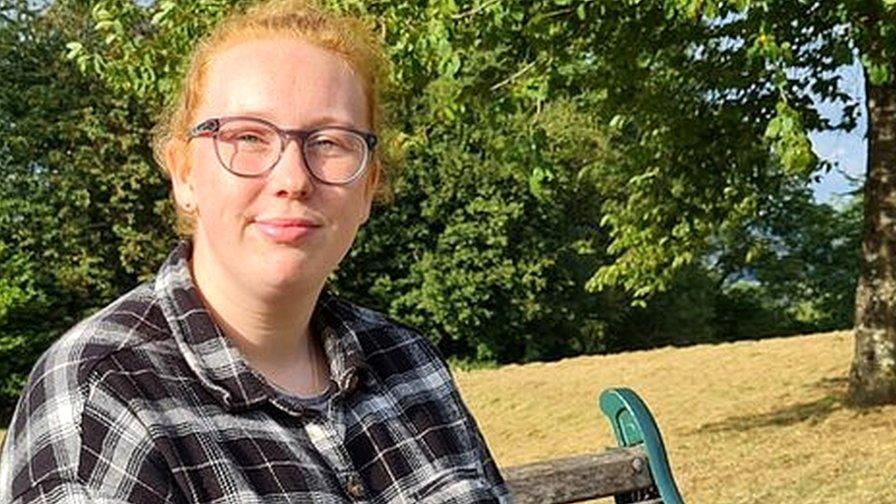
- Published18 February 2021
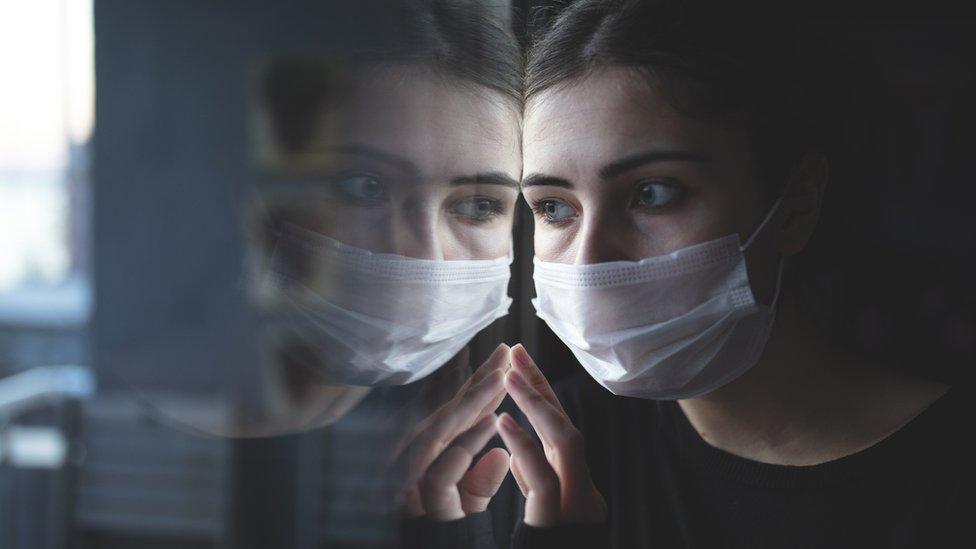
- Published27 September 2021
